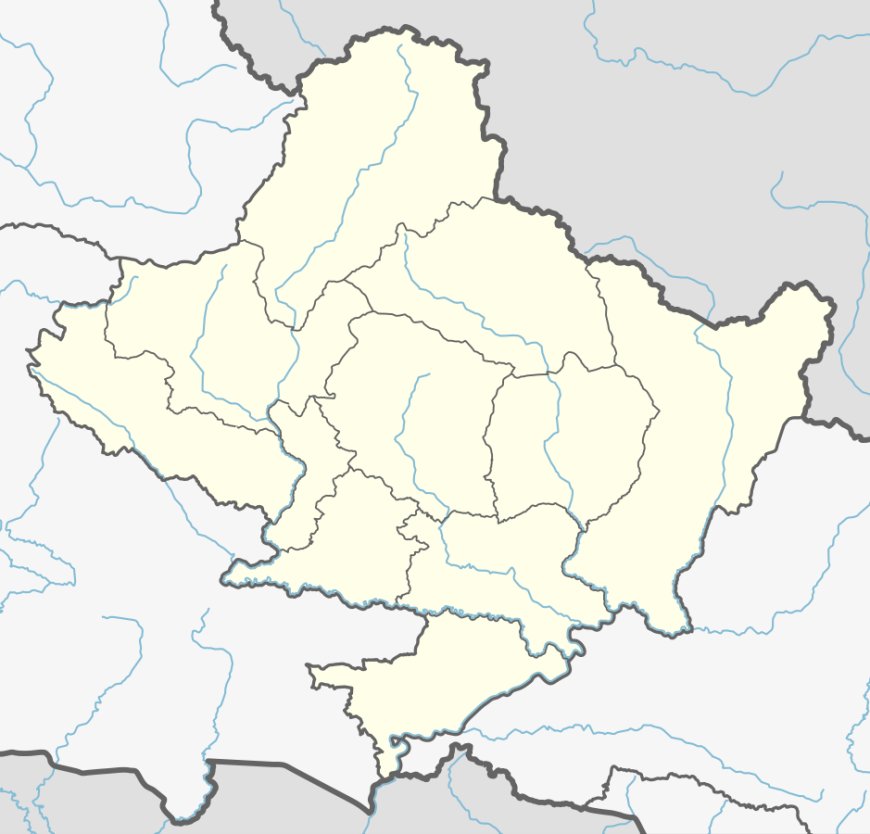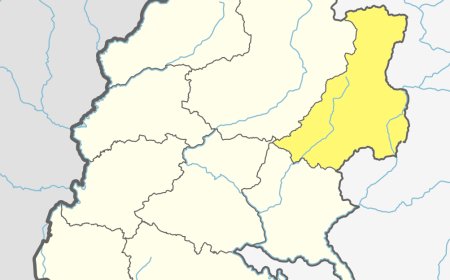Manang: A Hidden Himalayan Paradise
Let’s explore Manang, a district with breathtaking landscapes, Himalayan peaks, and renowned trekking routes like Annapurna Circuit.

Introduction
Manang is a beautiful district located in the western region of Nepal, renowned for its stunning natural beauty, cultures, and adventure tourism. Located in the Gandaki Province, Manang serves as a gateway to the Annapurna Circuit, one of the most chosen trekking routes in the world. This district offers a harmonious blend of majestic mountain vistas, ancient monasteries, and traditional villages. This district is an ideal destination for trekkers, spiritual seekers, and nature enthusiasts, with its dramatic landscapes and deep-rooted cultural heritage making it a treasure waiting to be explored.
Geographical Overview
This district covers an area of 2,246 square kilometers and has a diverse topography, including rough mountain peaks, lush valleys, and pristine rivers. The district’s elevation ranges from 1,879 meters to 8,091 meters, encompassing part of Annapurna I, the tenth-highest mountain in the world.
The climate in Manang varies from temperate in lower regions to alpine and arctic at higher altitudes, fostering unique ecosystems. The Marshyangdi River flows through the district, contributing to its agricultural and hydropower resources.
Table: Geographical Features
|
Feature |
Data |
|
Total Area (sq. km) |
2,246 |
|
Altitude Range (m) |
1,879–8,091 |
|
Major River |
Marshyangdi |
|
Climatic Conditions |
Temperate to Arctic |
Demographics
This district is home to a population of approximately 6,500 people, mostly of Tibetan-Buddhist heritage. The Gurung community forms the largest ethnic group, followed by the Thakali and Tibetan-speaking people. The district’s small population contributes to its peaceful and unspoiled environment. Nepali is the primary language spoken, along with Gurung, Thakali, and Tibetan dialects.
Traditional festivals and rituals, such as Yartung and Lhosar, reflect the rich cultural tapestry of Manang, celebrating seasonal changes and community bonds.
Table: Ethnic Composition
|
Ethnic Group |
Percentage (%) |
|
Gurung |
50% |
|
Thakali |
25% |
|
Tibetan-speaking |
15% |
|
Other Groups |
10% |
Cultural and Historical Significance
This district’s cultural heritage is deeply rooted in Tibetan Buddhism and Himalayan traditions. The district hosts numerous festivals, such as Yartung, a horse-riding festival marking the end of the monsoon season, and Lhosar, the Tibetan New Year, celebrated with vibrant rituals and community gatherings.
This district is also known for its ancient monasteries and gompas, such as Braga Monastery, which dates back over 500 years. These sites serve as spiritual hubs for both locals and visitors. The district’s traditional architecture and lifestyle further emphasize its cultural significance.
Table: Key Festivals
|
Festival |
Month |
Significance |
|
Yartung |
August |
Horse-riding festival marking seasonal change |
|
Lhosar |
February |
Tibetan New Year |
|
Dashain |
October |
Hindu festival of victory |
|
Tihar |
November |
Festival of lights |
Major Attractions and Activities
This district’s breathtaking landscapes and cultural landmarks make it a sought-after destination for both adventurers and cultural enthusiasts. The Annapurna Conservation Area, home to diverse flora and fauna, is a centerpiece of the district, offering unmatched trekking experiences.
Other attractions include Tilicho Lake, one of the highest-altitude lakes in the world, and the historic Braga Monastery. Visitors can also explore traditional villages like Ngawal and Pisang, where they can experience the local way of life and hospitality.
Table: Major Attractions
|
Attraction |
Location |
Highlight |
|
Annapurna Circuit |
Across Manang |
World-famous trekking route |
|
Tilicho Lake |
Eastern Area |
High-altitude glacial lake |
|
Braga Monastery |
Braga Village |
Ancient Buddhist monastery |
|
Marshyangdi River |
Central Area |
Scenic beauty and adventure sports |
The district offers various activities, including trekking, rock climbing, and exploring Himalayan wildlife. Eco-tourism initiatives in this district emphasize preserving its natural and cultural assets, ensuring sustainable travel experiences.
Economic Overview
The economy of this district is primarily driven by tourism, agriculture, and trade. Trekking and mountaineering activities attract thousands of visitors annually, contributing significantly to the local economy. Agriculture is limited due to the high altitude, and includes the cultivation of barley, buckwheat, and potatoes. Yak farming and traditional crafts, such as Thakali weaving and Tibetan jewelry, also support livelihoods while preserving cultural heritage.
Table: Economic Highlights
|
Sector |
Contribution |
|
Tourism |
Annapurna trekking, Tilicho Lake |
|
Agriculture |
Barley, buckwheat, potatoes |
|
Traditional Crafts |
Thakali weaving, Tibetan jewelry |
Conclusion
Manang is a captivating district that seamlessly combines natural splendor, cultural depth, and economic potential. Its towering peaks, serene valleys, and vibrant traditions offer a unique blend of adventure and spirituality. From the world-renowned Annapurna Circuit to the serene Tilicho Lake and ancient monasteries, this district is a haven for travelers seeking unforgettable experiences. Whether drawn by its breathtaking landscapes, rich heritage, or warm hospitality, the district promises a journey that will resonate long after the visit.
Frequently Asked Questions (FAQs)
-
Where is Manang located?
Manang is situated in the western part of Nepal, in Gandaki Province.
-
What is Manang best known for?
The district is famous for the Annapurna Circuit trek and Tilicho Lake.
-
Which river flows through Manang?
The Marshyangdi River flows through Manang.
-
What is the dominant ethnic group in Manang?
The Gurung community forms the largest ethnic group in the district.
-
What are the major crops grown in Manang?
Barley, buckwheat, and potatoes are the primary crops grown in Manang.
-
What is the best time to visit Manang?
Spring (March to May) and autumn (September to November) are the best seasons to visit Manang.
-
What cultural festival is celebrated in Manang?
Yartung is a major festival celebrated with horse-riding and community events.
-
What is the significance of Braga Monastery?
Braga Monastery is an ancient Buddhist site with spiritual and historical importance.
-
What makes the Annapurna Circuit special?
The Annapurna Circuit offers diverse trekking routes with stunning views of the Himalayas.
What's Your Reaction?







































































































